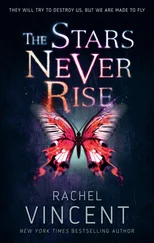“That’s right,” one of the cops said. He knew the ambulance driver wasn’t necessarily being altruistic, imagining someone waiting for these two somewhere with no way to get in touch with him. Unidentified victims were a paperwork nightmare.
“Goddamn,” his friend said, watching the EMTs load them into the ambulance. The lady was so pretty, delicate and petite. Bystanders were saying she had curled her body around the child to protect her from the runaway cab. Ten to one she was from out of town, staying at the Plaza for a special holiday treat, nailed by some celebrating cabbie on his way back to the garage with a bellyful of cheer.
Throwing the useless handbag into the ambulance, they watched the vehicle scream down West Fifty-ninth Street, heading for St. Bernadette’s Hospital.
Speeding crosstown, the ambulance driver ran every light carefully, easing through intersections. Storms brought out the worst in New Yorkers. They panicked at the first sign of snow. The driver stayed steady, focused on avoiding the slow traffic and numerous fender benders. Aware of his critical passengers, he called ahead to alert the emergency staff.
Oxygen masks covered the victims’ faces. The attending EMT pulled away the woman’s cape, searching for a heartbeat. Checking her blood pressure, he felt shocked when her eyes opened. She lay still, her lips blue. The intensity in each small movement was frightening to behold as she opened her mouth to speak one word: “Amy,” she said.
“The little girl?” the technician asked.
“Amy …” the woman repeated, panic apparent in her eyes and in the effort it took her to whisper.
“Your daughter?” the EMT asked. “She’s right here beside you, she’s just fine. You’re both going to be just fine. Lie back now, there you go. Just –” he said, watching her unimaginable distress behind the oxygen mask before she slid back into unconsciousness.
The kid’s arm’s a mess, he thought, silently chastising himself for the blatant lie.
The trauma unit was ready. Intercepting the ambulance beneath the wide portico, they slid the woman and girl onto gurneys. IV lines were hooked up. Blood and plasma were ready, just waiting for blood samples to be typed. Nurses and doctors in green surrounded the victims, assessing the worst of their injuries. Woman and child were wheeled into separate cubicles.
While the doctors worked, an EMT brought the black satin handbag to the desk. The head nurse checked it for ID, but the police report was right: The wallet was missing. She found two tickets for the ballet, two Amtrak ticket stubs originating in Old Saybrook, and two business cards, one for a lumberyard in Niantic, the other for a fishing boat called Aphrodite.
“Find anything?” a young nurse asked, coming from the injured woman’s cubicle. “It would be awfully good to call someone.”
“What’s her condition?” the head nurse asked, glancing up.
“Critical,” the younger woman said, discarding her gloves. She was thirty-eight, about the same age as the woman she’d just been working on. She had children herself, including a ten-year-old daughter, just a little younger than the girl, and nothing made her count her blessings and fear the universe like a badly injured woman and child. “Both of them. Extensive blood loss, bruising, concussion and contusions for the woman, fractured humerus and severed artery for the girl. They’re prepping her for surgery.”
“There’s nothing much here,” the head nurse replied. “Cards for a lumberyard and a fishing boat …”
The head nurse squinted, taking a closer look. She saw a fine zipper she had missed the first time, along the seam of the bag’s lining. Tugging it open, she reached inside and fished out a small card filled out in elegant handwriting:
In case of emergency, please call Timothy McIntosh (203) 555–8941.
“Connecticut number,” the young nurse said, reading the card. “Think it’s her husband?”
Dialing the number, the head nurse didn’t reply. She got a recording: The area code had been changed. Using the new numbers, she learned that the phone was out of service. She tried the lumberyard: no answer at this hour. Frustrated, she looked at the last card and wondered what good could come from calling a fishing boat at the end of November. Since she had no options, she called the marine operator and requested to be put through to the Aphrodite.
Waves pounded the hull and light snow sifted from the dark night sky. Tim McIntosh gripped the wheel, steering a long course due south. He had been lobstering in Maine, saving enough money to last the winter in Florida. He wore thick gloves, but even so his hands were chapped and rough. His leather boots were soaked through, his feet blocks of ice.
He glanced at the chart, illuminated by light from the binnacle. Point Pleasant, New Jersey, was his destination. He’d put in at Red’s Lobster Dock for one night, then leave on the dawn tide for his trip south. Tim had had enough winter to last him for the rest of his life. Malachy Condon had once tried to talk him out of leaving for good, but that was before their final breach. Tim was heading for Miami.
A foghorn moaned over the sound of waves crashing against the steel hull. Checking his loran, Tim swung right into the Manasquan Inlet. The water grew calmer, but he could still feel the Atlantic waves pounding in his joints. He had traveled a long way. Great rock and concrete breakwaters flanked either side of the channel. Houses looked warmly lit; Christmas trees twinkled in picture windows, and Tim imagined other sailors’ homecomings.
The radio crackled. Tim’s ears were ringing from the constant roaring of the wind and throbbing of the Detroit diesel, but nevertheless he heard the high seas operator calling him.
“Aphrodite,” the voice said. “Calling vessel Aphrodite …”
Tim stared at the set. His first thought was that Malachy had relented. Tim felt a quick spread of relief; he had known Malachy couldn’t stay mad forever, that he wasn’t cold enough to just banish Tim from his life. Malachy Condon was an old oceanographer, scientific as they came, but he had a family man’s romantic vision of the holidays. Malachy believed in setting things right. He would want to fix things between them, press Tim to change his ways toward his daughter, her mother, Tim’s brother.
“McIntosh, aboard the Aphrodite,” Tim said, grabbing the mike, ready to greet the old meddler with “Happy Thanksgiving, what took you so long?” A click sounded, the operator connecting him to the caller.
“This is Jennifer Hanson from the emergency room at St. Bernadette’s Hospital in New York City. I’m afraid I have some bad news.…”
Tim straightened up, the human response to hearing “bad news” and “emergency room” in the same sentence. He hated New York, and so did every other fisherman he knew. Even worse, he despised hospitals and sickness with every bone in his body.
“A woman and child were brought in several hours ago. They have no ID save a card with your boat’s name on it.”
“The Aphrodite?” he asked, bewildered.
“The woman is slender, with blond hair and fair skin.”
He held on, saying nothing.
“Blue eyes …” the nurse said.
Tim bowed his head, his pulse accelerating. His mind conjured up a pair of familiar periwinkle eyes, searching and ready to laugh. Marsh-gold hair falling to her shoulders, freckles on pale skin. But with a child in New York? It wasn’t possible.
“Thirty-four or thirty-five,” the nurse continued. “Type O blood. The child is about twelve, has type AB.”
“I don’t know them,” Tim said, his mouth dry. Didn’t his daughter have type A? His head felt strange, as if he had the flu. The rough seas getting to him. Payback time for running out on his daughter time and again. He felt guilty enough already, obsessed with the way he lived his life. Malachy had never written him off before, and the old man’s final rage had shaken Tim to the core.
Читать дальше












